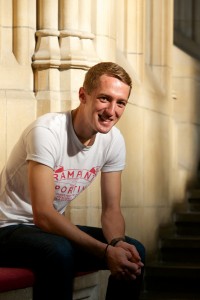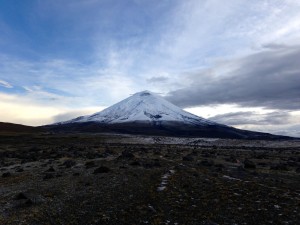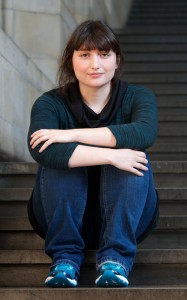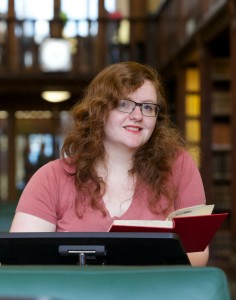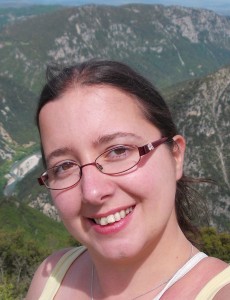 Tessa Coombes is a first year postgraduate researcher in the School for Policy Studies. After recently completing the MSc in Public Policy at the University of Bristol, involving a dissertation on affordable housing, she decided to stay on and continue her research interest in politics, policy process and housing. Her research is focused on how housing policy is treated at a time of political change, using the General Election 2015 and Bristol Mayoral Election 2016 as the basis of her study she will look at political influences on policy formation and change.
Tessa Coombes is a first year postgraduate researcher in the School for Policy Studies. After recently completing the MSc in Public Policy at the University of Bristol, involving a dissertation on affordable housing, she decided to stay on and continue her research interest in politics, policy process and housing. Her research is focused on how housing policy is treated at a time of political change, using the General Election 2015 and Bristol Mayoral Election 2016 as the basis of her study she will look at political influences on policy formation and change.
I started my PhD in October this year, just a couple of months ago. My journey to this point started out in full time work, as a Senior Manager, thinking about all the things I’d rather be doing and wondering why I’d ever left the academic world some 20 years ago. I then travelled through the pain of redundancy and the challenge of a year doing an MSc and here I am now, signed up for three years full time to do a Social Policy PhD – how did that happen?
Well, the starting point for this phase of my journey was the rapid realisation, during my MSc year, that I really enjoyed the studying, the learning and the intellectual challenge of being in the academic world. I also realised that my frustrations with the MSc dissertation process were about not having enough time to properly delve into the literature, to do the research I wanted to do, or to really understand the issues that arose during interviews. Four months was just not long enough.
During my MSc year various people had asked me if I was considering doing a PhD and my response was largely to laugh at the idea – me, do a PhD, at my age? But then I got to thinking, about how much I still had to learn, how much reading I still wanted to do and how I wanted to challenge myself more in a different way, and the idea began to take hold. Maybe I could do a PhD after all? From that point forward, it was actually quite an easy process from taking the decision, putting together a proposal and completing my application.
Everyone in the School for Policy Studies was incredibly helpful and encouraging, from administrative staff and existing PhD students, to lecturers and the Head of the School, they helped me to make sense of the process, complete the online forms and shape a proposal that at least would act as a starting point for discussion. And so, here I am now, a few months into the programme, doing taught units and assignments on research methods and developing my research proposal further.
My ascent from MSc to PhD was almost seamless; as I finished one course I was starting on the next, so there was little time for a break or to reflect. But in the first few months I have picked up some sound advice and guidance from supervisors and existing PhD students and have equally learnt a little from the MSc process. So, for anyone who is thinking about doing a PhD or just embarking on the first stages of their research, here are three of the key things I have learnt in the first few months that are already beginning to make the process easier and more enjoyable: get organised, get visible, and get trained.
- Get Organised – a critical piece of advice shared by others who had embarked on doing a PhD and also emphasised by my supervisor. This I interpreted partially as working out what bits of kit and software I should become familiar with to help me collate, organise and annotate all the information I was likely to collect throughout my research. I personally have hooked up with Zotero for citations and referencing; Evernote for saving web based information and annotating it; and Scrivener to help organise my thoughts when developing coursework and writing. I’m sure there are many others that are available and just as good, the key point here is about finding out what works best for you and getting to know your way around it as early as possible.
- Get Visible – this was advice I was given by a very good friend when I first lost my job; don’t disappear she said, keep your profile! Sound advice which I think is just as relevant now that I’m embarking on a new programme of research and a new stage in my own personal journey. It’s about sharing that learning and research, and making contact with others with similar research interests. I find social media extremely useful for this, I use twitter (@policytessa) and run my own blog site (www.tessacoombes.wordpress.com) to share my views and connect with others; and I use LinkedIn groups to engage in discussion and debate. All are useful ways of making contact with others and putting your views out there for challenge and feedback. It can be scary to begin with but extremely useful once you start and get the hang of it. I have engaged with many who share similar interests through discussion on twitter and my blog, who I now meet in real life regularly to debate and discuss issues with. I have also in the last month or so learnt about new engagement platforms such as ResearchGate which has a much more academic focus. This is only the first step, getting published and speaking at conferences has to be an aim, but I see that as something further down the line.
- Get Trained – this is something I am only just beginning to get to grips with, but as a PhD researcher the opportunities for development and training appear to be endless. In over 20 years of work I can’t ever remember being given the chance to engage in so much ‘free’ training, which ranges from formal training sessions to informal seminar series. I plan to make much more use of this over the coming months, to get up to date with all sorts of things I’ve never had the opportunity or time to engage with before. I have the opportunity to learn how to deal with issues I will undoubtedly face over the next few years and to overcome things I am not good at now. The training is there to help me both through the Bristol Doctoral College and the School for Policy Studies. There are opportunities to engage with other PhD students from different subject areas, to widen my knowledge and learning beyond my own field of study.


